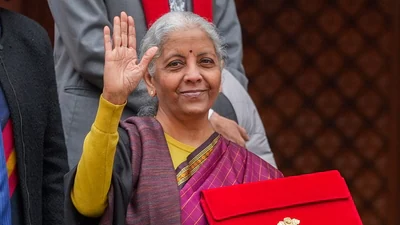Both the air freight export and the sea freight export segments were taxed when the GST was implemented on July 1, 2017. However, following numerous rounds of representation, the GST Council came to see the logic of the exemption request and granted exclusions for services such as the transfer of commodities by ship or aircraft from an Indian customs station of clearance to a location outside of India.
After being renewed twice, the GST exemption on export freight expired on September 30, 2022. Exporters must now pay GST on export freight, which they may then claim a refund for (GST on ocean freight must be paid at 5 per cent starting on October 1; the tax is 18 per cent for on-air shipments charged to Indian clients). Additionally, as per Section 12(8) of the IGST Act, from October 1, 2022, the tax must be added to any outbound freight transactions that are billed to Indian consumers with a place of supply of 97 (other territories).

Jolt to the trade
According to advocate K. Vaitheeswaran, “The commerce and business community have been shocked by the GST exemption not being extended in respect of services by way of transportation of commodities by aircraft or vessel from a customs station of clearance in India to a destination outside India.”
According to one school of thought, levying the GST won’t be difficult because ITC will be available throughout the supply chain and the exporter will ultimately receive the refund. The real issue is whether India has the right to charge GST on overseas freight rather than whether ITC or a refund should be offered. International freight, including the services of freight forwarders and related services, is zero-rated in Singapore on both import and export. International shipping is tax-free in many GST nations, including Australia, New Zealand, and the UK. As opposed to other nations, India should have zero-rated export freight; hence the exemption itself was a compromise.
A severe threat exists in the form of the freight forwarding industry’s own flights. High GST rates and cash flow constraints can force exporters to switch to a FOB model with a “freight collect” basis. This would imply that the importer would pay the freight to the freight forwarder or agent based outside of India at the destination. The export sector employs a sizable workforce, and the freight forwarder segment includes a lot of MSME businesses. A loss of one of the sector’s primary revenue sources—the negotiation of freight rates—would be dramatic.
Geopolitical factors, conflict, the fuel crisis, the dollar’s strength, rising inflation in the nations that buy India’s exports, and the energy crisis are all causing turmoil that could affect the European market and consumer demand. Since air freight has surged by around 150 per cent since COVID, any GST on it would put a considerable strain on freight forwarders’ cash flow. The exporters are already struggling with cash flow issues, so paying the GST on freight and getting the same back is not a very appealing option.
The commerce and business community have been shocked by the GST exemption not being extended
K. Vaitheeswaran

Detrimental impact on exports.
As per Afzal Malbarwala, President, ACAAI, “It will definitely affect our and exporters’ business. Cash flow will be the biggest hurdle. Every exporter has to make huge investments after the pandemic since all importers are asking for credit to keep up business and compete with other countries. On top of it, this rule will seriously affect exports. The government wants to promote exports and has launched a new National Logistics Policy (NLP), which was accepted by all and is now a big blow.
Anywhere in the world, there is no GST on exports and related goods. Why is there no GST on sea freight, which is less than one-third the price of airfreight; why is there on airfreight?
There is no GST on air imports, but there is a 5per cent GST on sea imports. We request the government to seriously reconsider the decision and charge GST @ 0 per cent, which happens worldwide for sea and air.”
With effect from October 1st, there has been an additional 18per cent GST payable in advance on export freight with the option of input credit. This will put a strain on exporters’ working cash flow, which is still recovering from the pandemic downturn and a lack of significant international demand for traditional export products. While the Commerce Ministry wants every district to identify and promote at least one product for export, the elimination of this exemption will offer financial challenges, particularly for the SME segment, since many of them are cottage industry based or fall below the threshold limits. Even for GST-registered businesses, this raises compliance costs because full input credit is permitted, which does not generate additional revenue for the government but would increase the compliance cost to the taxpayers.”
The government wants to promote exports and has launched a new National Logistics Policy (NLP), which was accepted by all and is now a big blow.
Afzal Malbarwala

Liquidity Constrain
“The world trade is entering a very challenging era as countries are dealing with high inflation and an imminent recession impacting demand,” believes Piyush Kumar Singh, a logistics and SCM professional. The World Trade Organization (WTO) predicts a dramatic fall in global trade in 2022, the pace of growth in exports is also slowing down. This can be seen in the export rate from April to August 2022. Traders worry that this will negatively affect international shipments and make liquidity issues worse. An exemption will enable the export sector to have better liquidity, which is urgently needed given the extremely high cost of financing for exporters.
The commerce and industry ministry noted the robust growth experienced in some regions, including those in Latin America and Africa, but warned that the industry needed to be vigilant and upbeat to take advantage of growth prospects in these new markets. Industry participants were given the assurance that the government is dedicated to resolving their concerns.
Exporters are demanding reconsideration because they feel the government’s strategy will restrict liquidity at a time when they are struggling with poor demand in advanced nations. The government authorities contend that since the refunding process has grown simpler, there was no need to extend the benefit. The exporters can expect to receive their money back in at least three months. For transactions from the previous month, the deadline for filing is the 20th of each month. The process is not over until the returns are completed. Even if the Commerce Ministry encourages every district to identify and promote the export of at least one product, the abolition of this exemption will have a negative financial impact, especially on the SME segment since many of them are cottage industry based or below the threshold constraints. Due to the fact that full input credit is permitted, even for GST-registered enterprises, boosts compliance costs, resulting in higher costs for taxpayers rather than increased tax collections. Cash flow will be the biggest obstacle. Following the outbreak, all importers are asking for funding, forcing all exporters to incur large costs in order to stay in business and compete with other countries.
Nowhere on the planet has a GST been applied to exports or anything similar. We urge the government to carefully rethink its choice and charge GST at 0 per cent, as is done internationally for air and marine freight. Other countries are engaged in ferocious competition in the international market as a result of the recessionary trends. Orders are already being delayed by international vendors. As a result, India is paying more to hold back export shipments. The National Logistics Policy wasn’t introduced until the news spread, but it quickly won over businesses and was praised as a measure to boost export activity. Because air freight is typically much more than the freight on board (FOB) value of exports for fruits and vegetables, such a move will most likely have an impact on our agricultural exports. Therefore, exporters would be required to pay a very high GST amount on such freight, which would have a detrimental impact on cash flow.
Nowhere on the planet has a GST been applied to exports or anything similar.
Piyush Kumar Singh

In a similar vein, Dileepa BM, CEO, Bonded Trucking at Shreeji Translogistics, believes that GST will have a significant negative impact on exporters’ liquidity as well as agricultural exports. The freight on board (FOB) value of perishable exports, such as fruits and vegetables, is frequently substantially more than the air freight. As a result, exporters would have to pay a relatively high GST amount on such freight, which would negatively affect cash flow.
He continues, “The quantity of exports from India as a whole has drastically decreased since the implementation of GST on October 1, 2022. Our Trade has also made a presentation to the Ministry to abolish GST on export cargo as it is not applicable in other countries.”
GST will have a significant negative impact on exporters’ liquidity as well as agricultural exports.
Dileepa BM

Grave cause for concern
According to Gurpreet Singh Chawla, MD, Ocean King Shipping Services, “India is a very competitive economy that struggles far too much when compared to other industrial hubs like China, Vietnam, and Sri Lanka. Our exports could have exceeded those of the majority of our competitors, as stated above, as well as our own imports if a strategic boost were to be implemented. However, leaving all of this aside, the struggling export industry has further been weakened by GST on freight. The biggest challenge is that with exporters selling their goods on 60/90/180d credit to international importers, neither they nor the IATA agent, who is already up against it with collections and payments of freight, will be in a position to pay this kind of tax. Air cargo is already a highly regarded business avenue. Even imagining a staggering 18per cent on a most basic medium-sized IATA cargo agent’s turnover of 3crore per month could mean 54 lacs of GST per month.
During COVID, freight rates shot up to 20 times on certain routes. While we are still in the phase of correction where artificial inflation of freight rates is still evident, adding another impact of tax over already increased prices leaves a deep cause of concern about how the industry will realign, restructure, or sustain itself. And with that said, I also think India will be the only nation in the world to tax or charge GST on freight!”
Our exports could have exceeded those of the majority of our competitors, as well as our own imports if a strategic boost were to be implemented.
Gurpreet Singh Chawla

Backward Step for India
Export freight was exempted in 2017 with the use of a notification. As per Sunil Arora, Past President, ACAAI, “The people, then at MoF dwelled upon logical justifications and awarded a continuous extension until September 2022.”
The GST levied on export freight will have a significant negative impact on the Indian economy globally. Gati Shakti, Make in India, and Ease of Work, among other PM initiatives, will reverse course. GST on export freight will reduce the competitiveness of our export goods on the global market. India has only recently recovered from the effects of the pandemic-induced crisis; nonetheless, exporters and the freight forwarding community will experience severe cash flow setbacks and other compliance consequences related to the refund process. Refunds cannot be acknowledged after the freight has been subjected to GST, which is not a sensible or practical financial element. In fact, it will make working more difficult and make accounting and financial administration more time-consuming. We humbly request the Honorable PM and the MoF’s prompt consideration. In order to compete on an even playing field in the global marketplace, we demand a permanent zero rating on international freight. There is no GST or VAT on export air and sea freight in any of our main export-and logistics-competing nations. “SAVE EXPORTS, SAVE LOGISTICS, SAVE THE NATION,” he exhorts in closing.
SAVE EXPORTS, SAVE LOGISTICS, SAVE THE NATION
Sunil Arora

Sunil Kohli, Managing Director, Rahat Cargo, states something along these lines: The traders have legitimate concerns as the loss of the GST exemption for air and sea freight will undoubtedly have a negative impact on their ability to ship goods abroad and cause them to run into liquidity issues.
A delegation of exporters has already informed the respective ministries that international freight has increased by 200–250 per cent from 2019 levels, up from pre–COVID levels where it was 300–350 per cent higher. Although the GST on export freight is revenue-neutral because exporters can request a refund after making the payment, the liquidity of the funds is a crucial aspect that frequently acts as a barrier to business growth and the exporters’ ability to further explore new markets. The removal of the exemption may improve the government’s cash flow, but it will come at the expense of exporters and freight forwarders because the latter will be required to pay the relevant GST to the relevant carriers up front. In other words, the resultant liquidity shortage has an adverse financial impact on both exporters and their forwarding agencies. Therefore, the government must be sympathetic to the plight of the stakeholders and should reinstate the GST exemption as it was up until September 30, 2022.
The removal of the exemption may improve the government’s cash flow, but it will come at the expense of exporters and freight forwarders.
Sunil Kohli

Challenging times
“Freight firms will face significant challenges as a result of the recent GST changes, particularly for ocean freight since they will have to compete with foreign freight owners who are not impacted by the move. Ultimately, this ends up providing the sector with a very difficult time surviving in this price-sensitive market, according to Exim & FEMA Consultant Archita Bansal.
The freight industry does not have much opportunity for maximum earnings in the post-COVID era due to rising fuel prices and the general slowdown in the economy. Companies involved in logistics were devastated and managed to survive during the COVID era. Now that the support has been cut off, logistics and freight firms will suffer twice as much.
The government must also consider how any such shift affects the price of goods for all industries, whether they are small, struggling, or those the government wishes to help expand. The cost of goods goes up when effective freight costs go up. Even the best products (in any industry) do not penetrate or are not preferred well, if the cost of product availability rises. Indeed, logistics is a crucial component of any industry. The government should think about delaying the decision to remove the GST exemption clause for at least a little while, given the current situation and the need to help all industries.
Ultimately, this ends up providing the sector with a very difficult time surviving in this price-sensitive market.
Archita Bansal

Financial impacts
“In order to support the New Logistics Policy, the industry expected the government to extend the Goods and Service Tax (GST) freight exemption notification. However, this has not happened, “said Vipin Vohra, Chairman, Continental Carriers.
“I, along with the industry players, genuinely think that this will have a significant financial impact on the freight industry. This move will increase the freight costs and create an unnecessary burden on the exporter. It is unclear how this action can advance the goal of the Commerce Ministry, which recently launched NLP with the sole aim of reducing costs and wants every district to identify and encourage the export of at least one product. Our industry is still struggling to make a comeback post-pandemic and unnatural causes like the Ukraine-Russia war.
From now onwards, logistics companies will have no choice but to levy 18 per cent GST on air freight and 5 per cent on ocean freight from October 1, 2022, onwards, till the notification is issued. I wish there was no GST on export freight and freight forwarding in India, as it is in the majority of other countries, “he continued.
It is unclear how this action can advance the goal of the Commerce Ministry, which recently launched NLP.
Vipin Vohra

Similar remarks were made by Yadvinder S. Dhiman, Business Head (Exports), HERO Exports: “Conceptually, GST is a good taxation system adopted by the Government of India that has solved several shortcomings in VAT and Excise Duty. However, the government’s decision to reinstate the GST on international freight, particularly at a time when the industry is in desperate need of assistance and the business mood globally is at an all-time low, is unwelcome. Although the GST paid on freight is refundable once the export procedures have been followed and the necessary GST returns have been filed, this has a direct effect on the exporters’ liquidity.
Second, there is no use in applying GST on the freight and then refunding it because the government’s concept is that we export goods and services rather than taxes when the freight, whether it be by air or sea, is intended for export. Therefore, in my opinion, the government’s decision to reinstall the GST is not a favourable one; rather, the exporter community is looking for support from the government during this difficult time.”
Conceptually, GST is a good taxation system adopted by the Government of India that has solved several shortcomings in VAT and Excise Duty.
Yadvinder S Dhiman
The exporter community is looking for support from the government during this difficult time

Exporters apprehensive
The government’s decision to remove the GST exemption on export freight at the beginning of the month has made exporters worried since they expect liquidity to fall at a time when they are coping with sluggish demand in advanced countries, pushing them to seek a rethink.
From October 1, 5% GST will be levied on ocean freight, while 18per cent GST will be levied on air exports to Indian clients.
While officials stated that there was no need to extend the benefit because the return process had gotten simpler, exporters claimed that it may take up to three months, if not longer, to receive the money.
The procedure is not complete until the returns are filed, and the deadline for filing is the 20th of each month for transactions that occurred in the previous month. Exporters said there was a need for additional liquidity as interest rates rose and payment cycles from overseas buyers lengthened. “Recessionary tendencies have resulted in stiff competition from other countries in the international market. International purchasers have already begun postponing accepting orders. As a result, the cost of storing export consignments in India is rising,” said Naren Goenka, Chairman, Apparel Export Promotion Council.
International purchasers have already begun postponing accepting orders. As a result, the cost of storing export consignments in India is rising.
Naren Goenka











